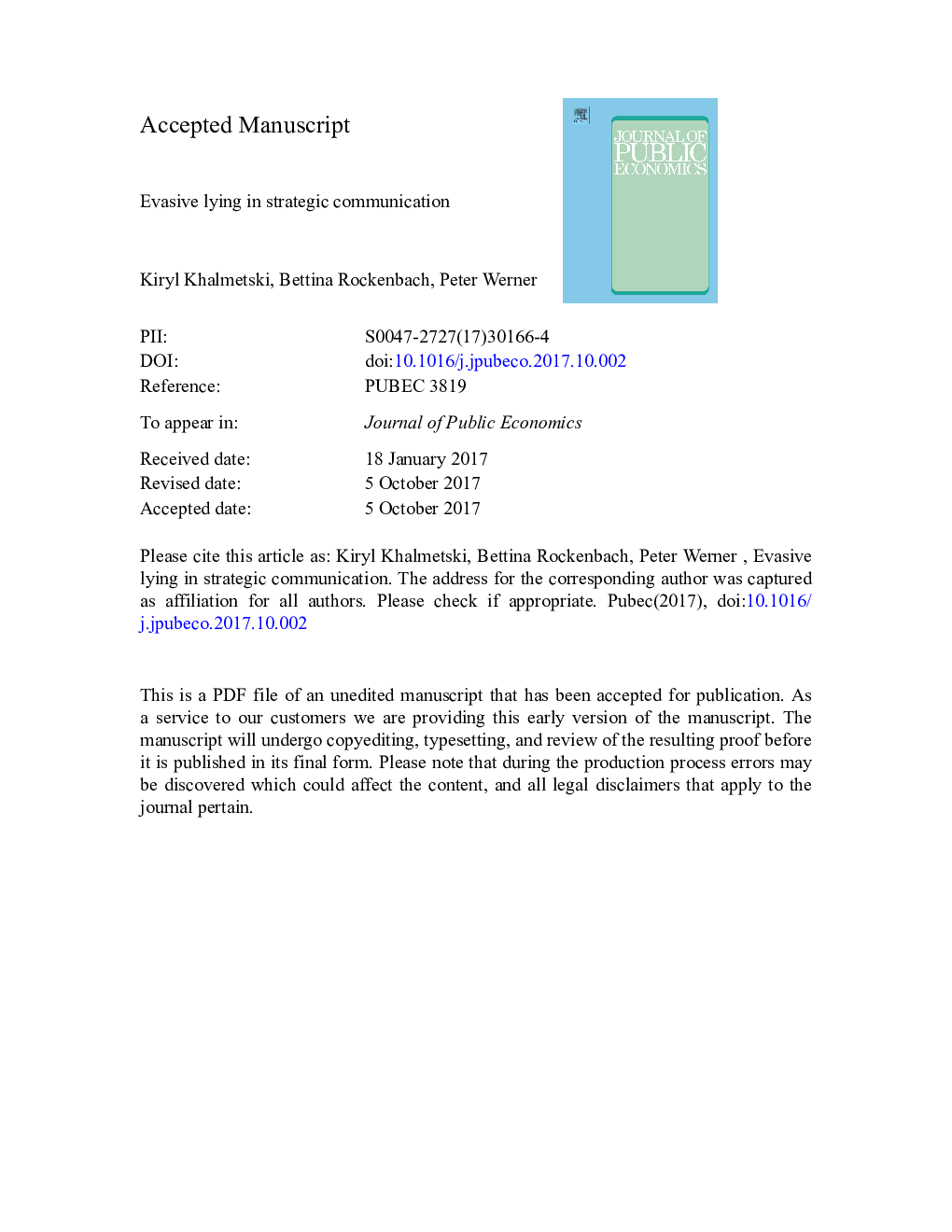| Article ID | Journal | Published Year | Pages | File Type |
|---|---|---|---|---|
| 7369698 | Journal of Public Economics | 2017 | 35 Pages |
Abstract
Information asymmetries in economic transactions are omnipresent and a regular source of fraudulent behavior. In a theoretical and an experimental analysis of a sender-receiver game we investigate whether sanctions for lying induce more truth-telling. The novel aspect in our model is that senders may not only choose between truth-telling and (explicit) lying, but may also engage in evasive lying by credibly pretending not to know. While we find that sanctions promote truth-telling when senders cannot engage in evasive lying, this is no longer true when evasive lying is possible. Then, explicit lying is largely substituted by evasive lying, which completely eliminates the otherwise positive effect of sanctions on the rate of truth-telling. As outlined in our model, the necessary prerequisite for such an 'erosion' effect is that evasive lying is perceived as sufficiently less psychologically costly than direct lying. Evidence from our experimental data and a survey conducted with additional participants indicate that the shift towards evasion can indeed be attributed to lower psychological costs. Overall, our results clearly demonstrate the limitations of sanctioning lying to counteract the exploitation of informational asymmetries and may explain the empirical evidence from the finance industry that sanctions for financial misconduct eventually appear to be not very effective.
Related Topics
Social Sciences and Humanities
Economics, Econometrics and Finance
Economics and Econometrics
Authors
Kiryl Khalmetski, Bettina Rockenbach, Peter Werner,
